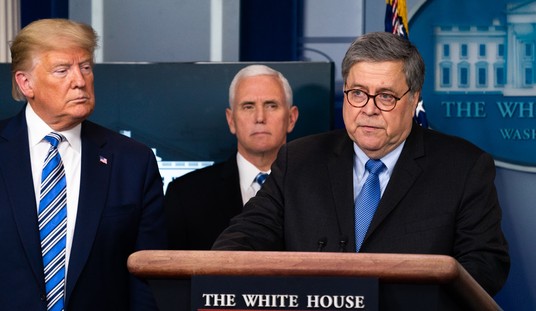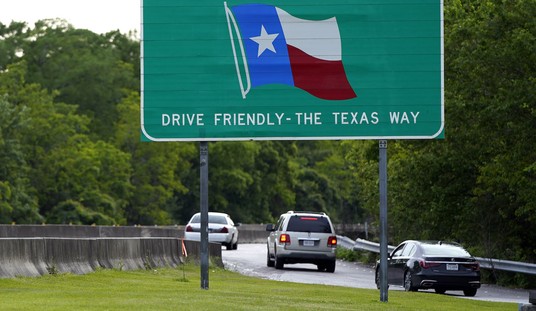Check out the previous installments in James Jay Carafano’s ongoing series exploring war films: The 10 Best Movies to Watch to Understand the Cold War, 10 War Movies Guaranteed to Make You Cry, America’s First Wars in 10 Movies, 10 Movies For Understanding the Civil War, A 10 Film Introduction to America’s Turn of the Century ‘Small Wars’.
They called it the Great War, but not the good war. “The world must be made safe for democracy,” declared President Woodrow Wilson.
Others were not so sure. Many Americans were none too excited about Wilson’s war, Wilson’s peace or the anti-saboteur measures implemented at home that also swept up political dissidents, union activists and other innocents.
Over the years, American films have reflected a variety of views about World War I and its aftermath. After all, movies tell us more about the people who made them and their audience than the war they featured. Here are 10 examples of schizophrenic Hollywood in action.
10. The Lost Battalion (1919)
Wilson told Americans they were fighting the “war to end all wars.” America’s first filmmakers wanted to show America’s first movie audiences America’s doughboys in action. This silent film includes some of the real soldiers, including Medal of Honor recipient Lieutenant Colonel Charles W. Whittlesey, reenacting the true-story of a U.S. battalion, cut off and surrounded, that holds out for six days until relieved. Six hundred men went into the battle. Fewer than 200 marched out.
9. Wings (1927)
Post-war Americans weren’t much for reflecting on the gore and mud of trench warfare that claimed over 10 million lives. Film audiences preferred the technological thrill of aviation warfare paired with a suitable melodramatic romance. The best was this classic silent film featuring two pilots, one girl, and a war to be won in the air. The wildly popular movie established the formula followed by similar films like The Dawn Patrol (1930), Hell’s Angels (1930) and a remake of The Dawn Patrol (1938). Wings was also notable for launching the career of Hollywood newcomer Gary Cooper.
8. The Fighting 69th (1940)
As a second world war washed across Europe, Americans were deeply divided over whether our boys should be sent to fight another foreign war. Many wondered if Americans still had the stomach for a fight. Novelist James Michener recalled the pre-war jitters, noting: “Many observers considered us a lost generation and feared we might collapse if summoned to some crucial battlefield.” Hollywood early on decided to add to the arsenal of democracy with films to buck-up the American spirit. Since Americans weren’t at war, they turned to the last war for inspiration. This film is a romanticized version of the 69th U.S. Infantry Regiment fighting on the Western front. Cowardly misfit (James Cagney) is mentored into manhood by the regimental chaplain (Pat O’Brien).
7. Sergeant York (1941)
This film really swelled America’s martial ardor, to the point that the isolationist faction in the U.S. Senate organized a hearing on “Moving-Picture and Radio Propaganda.” Gary Cooper portrays Alvin York, a backwoods conscientious objector who finds himself drafted into the Army. York received the Medal of Honor for an action during the 1918 Meuse-Argonne Offensive when he single-handedly took a German position and 132 prisoners. Prior to Pearl Harbor, the real-life Sergeant York was one of the most active critics of the America First Committee, which opposed U.S. involvement in World War II.
6. Yankee Doodle Dandy (1942)
Even as Americans marched off to fight WWII, Hollywood enlisted their parents’ war to continue whipping up the nation’s patriotic spirit. No movie lifted their spirits more than the musical biopic of World War I-era showman George M. Cohan, starring James Cagney.
https://www.youtube.com/watch?v=l7cWpLd1-dc
5. The African Queen (1951)
After winning the Good War, Americans felt good about themselves—and so did Hollywood. This film turns a 1935 novel about a cockney roustabout who takes down an enemy gunboat blocking the British Army’s advance in German East Africa into the story of a gruff “Canadian” river boat captain who bests the Huns. But wait, the Canadian is played by Humphrey Bogart, an all-American hero from more than a few Hollywood war films including Casablanca (1942), Sahara (1943) and Action in the North Atlantic (1943).
https://www.youtube.com/watch?v=qpZwWRDWA3w
4. What Price Glory (1952)
America is still in a self-congratulatory mood (despite the outbreak of the Korean War). James Cagney is back at the front. This time in a romantic comedy (remake of a 1926 silent film) with—that’s right—two guys, one girl and a war to be won.
3. Johnny Got His Gun (1971)
An intense anti-war film tells the story of a crippled veteran (Timothy Bottoms) who lost all his limbs as well as his eyes, ears, mouth, and nose in the trenches. The movie tapped the pacifist mood that welled up across America in response to the Vietnam anti-war movement.
2. Legends of the Fall (1994)
The Cold War is over, and history has ended. All that matters is if you have great hair. In this tale of a western American family, tragedy at the front sets Tristan (Brad Pitt) on a sad path where all his loved ones die before him. But, he had great hair, and that paid off. The film delivered an unexpectedly profitable box office.
1. Flyboys (2006)
What to make of James Franco as dogfighting war hero in this fictionalized version of young American pilots who volunteered to join the Lafayette Escadrille, an air squadron flying at the front in France? Perhaps, the producers thought they would tap into the American martial spirit that stood so tall after 9/11. But by the time the film got to the big screen, the insurgency in Iraq and the disaster of Hurricane Katrina had already soured the American mood. That might explain why the movie made Variety’s list of the 10 biggest box office flops of the year.
This year marks the 100th anniversary of the outbreak of World War I. To most Americans, stories of the Great War seem as distant as Old Testament tales of warring tribes. For Hollywood, this monumental conflict remains as a backdrop, on which writers and producers can paint their views of war and peace and, sometimes, romance.









Join the conversation as a VIP Member